0
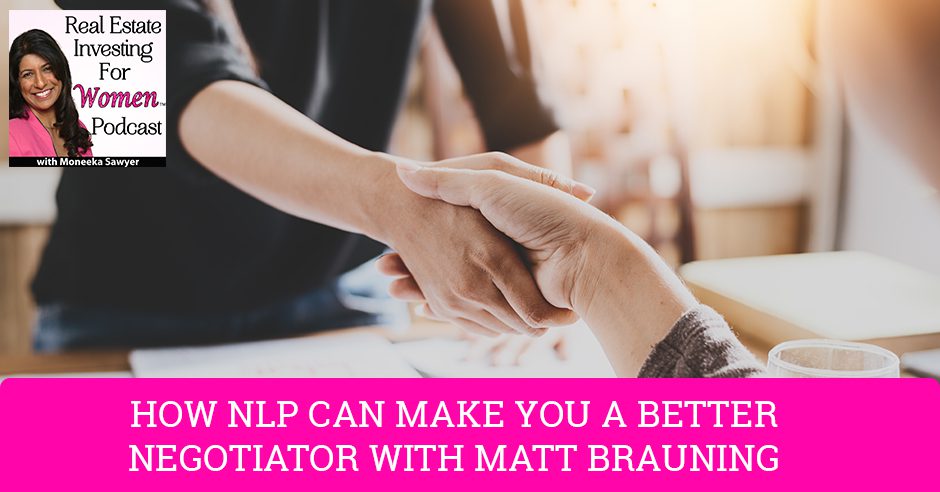
In this episode, Matt Brauning, keynote speaker and entrepreneur, joins Moneeka Sawyer as they discuss the power of NLP, Neuro Linguistic Programming, and how it can make you a better negotiator so you can best navigate through difficult conversations. Matt and Moneeka talk about learning the recipe and patterns consciously through NLP in anything you want to do and start to find success in your field. When you are aware of the pattern, you can consciously correct them. Matt also dives into ecological NLP and his mission to make the world a better place through better communication and clear intentions. Get in touch with how you create meaning for yourself and learn how you can take control of the narrative.
—
Listen to the podcast here
How NLP Can Make You a Better Negotiator with Matt Brauning
I am excited to welcome back to the show Matt Brauning, my dear friend, and mentor. Matt has been a writer for Forbes, a two-time bestselling author, and host of the top podcast The Driven Entrepreneur on iTunes and is syndicated on sixteen AM/FM stations coast to coast. He filmed in the movie, The Journey, with Brian Tracy and Bob Proctor. You’ve seen him on television on ABC, CBS, NBC, and Fox. Matt has been an entrepreneur since 2002 speaking all over the world including the US, Australia, New Zealand, and the UK. He has shared his message at places like The Harvard Club, McAfee, New York Life, The NASDAQ Marketplace, and the United States Air Force Academy. He is an avid motorcycle rider, church leader, and rock climber. He resides in Grand Rapids, Michigan with his amazingly beautiful wife Lola and his awesome son Valiant.
I’m glad to be back. Let’s make this happen. I can’t wait for this conversation with you.
I always love our conversations, Matt. Not only do I get to share you with my friends, but I know I’m going to learn something amazing.
Right back at you. This is one of the top real estate show for women so I’m looking to learn too.
I know you’ve been on the show before, but could you give us a little bit of background of who you are and why you got started in NLP?
Neuro-Linguistic Programming is the programming of our brains, our mindset, and our subconscious mind. I love this show in particular and you for this because I’ve only had two careers since I was eighteen years old, not including Caesar’s Steak House at seventeen. Since then I have run and owned my real estate brokerage as well as being a real estate investor myself, getting to $5 million in property by 25. I also turned away from the real estate world and decided to go in the coaching world and the speaking and training world because I love the fulfillment of helping an individual transform and change their lives and it’s fun. I love doing training at real estate companies, working with investors because I understand both sides of the mindset, but I also get the practical strategy because I use that in my life so much.
That’s why I wanted you back on this show because you bring a perspective of NLP to real estate. Let’s start by defining NLP.
I’ve gone some times in presentations for twenty minutes and somebody raises their hand and says, “What is it called again?” It’s a foundation for my life and the business. Neuro-Linguistic Programming is what NLP stands for. Neuro is for the mind, Linguistic is for language, and Programming represents the programs that we already have running behind the scenes. Our mind is not a computer by any stretch of the imagination, but in a way, it’s like that as a metaphor where you have these programs running, cleaning up, or taking care of something. Sometimes I find that we have programs that run that serve us and sometimes we have forgotten programs.
Those that we set up at five when we saw mom and dad fight over the checkbook and I thought to myself, “Money must be the root of all evil.” I’ve heard that somewhere. Now, many years later, I’m somehow subconsciously trying to stay away from money, but consciously I want to have it. That’s an example of a program. NLP is studying the programs that our mind runs and I believe how to take charge of them again, how to take control back for your subconscious mind.
A lot of times when people think of NLP, if they’ve even heard of it, they think about the guys on TV that manipulate people to do weird things. It’s a lot like hypnosis because there are languaging patterns and stuff like that with NLP too. Ladies, what I want you to know is I have my own story of why I found Matt. I was a coach for several years for executives. I found that in a lot of the training that I had, I would implement my coaching practices and people would say, “That’s NLP.” I kept hearing that and I thought, “What in the world? I had never taken an NLP training or whatever.”
What I discovered is that through a lot of the coaching practices, but also my life, NLP is simply a categorization of things that we naturally do. We naturally speak certain ways. We naturally connect with people in certain ways, and we naturally create programming in our heads. One of the things that I think is important to success is to live your life more consciously. Running your business more consciously and relating to your spouse more consciously. It was important to me that if I was already doing this thing, to be more conscious and purposeful about how I was doing it so it would improve me. It would improve my relationships, it would improve my business. That’s where I went on my search for an NLP trainer.
One of the things that I love about Matt is his heart. I met a lot of NLP trainers and they were all about success, business, self-improvement, patterns, and all of this stuff, but they didn’t talk about the thing that was most important to me, which is this is about connection, not manipulation. I think that was a fear that I had about it. It was important to me to find somebody that understood that connection piece and Matt is one of those people. One of the things that he talks about early on in any of his courses about keeping it ecological. Matt, could you talk a little bit about that?
If NLP was a tree, you’ll find a few twigs and the branches of the people that are out there trying to say, “This is a powerful communication tool.” Like any powerful tool, the metaphor has been probably drilled in the ground at this point, but you take a hammer and you can use a hammer as a tool to build something amazing. I flip the hammer around and I can use it to tear down and do all my demo too. A great tool can be used for whatever your purpose is. To me, it’s not about NLP but it’s about any industry that you get into. The question of manipulation is always there versus connection. I think there’s only one question to ask yourself is intent.
When you’re working with someone, when you go to a car dealer, when you go to a dentist, when you go to an NLP practitioner, coach, a real estate salesperson, or whatever it is, the question is, what is their intention? Is the intention to serve, to connect, to give you what you want, and also I get what I want and we have a mutually beneficial or ecological relationship? Is my intent solely to take care of me? Worse, is my intent solely to take care of me at the expense of you? Which I think is the ultimate level of not caring.
If that person with that kind of heart who doesn’t care, doesn’t want to serve, and wants what they want at anyone’s expense, if you give that person kryptonite, they turn to Lex Luthor. If you give that person a powerful tool, they’re going to use that to get ahead. I’m on a big mission in our NLP community. I have a whole membership, a group of people that love to practice ecological NLP. I want to get into the hands of everybody. I want everyone in the world to understand it because if we all understand how to communicate deeper, more effectively, more intentionally, consciously, I think the world will be a better place.
If everyone knows the NLP language “patterns” that you know and that I know, then all of a sudden if you do hear that random 1,000 people trying to lay some pattern on you or whatever and manipulate a situation, you’ll smell it a mile away. You’ll go, “What are you talking about? Get out of here.” I think keeping it, looking at the intention, you never have to worry about that. If you are ever worried about manipulation, learning the skillset that you’re worried about happening to you is one of the greatest ways, one of the greatest armors to tackle that in the world.
I don’t mean to say that other NLP trainers are not ecological also. There are a lot of wonderful people.
Many of them are, but some of them are not for sure.
What I love about you specifically, Matt, is that we talk about this first. It is the foundational piece of what you teach. One of the things that I will say about as a blissful investor, my relationships are key to everything that I do. My tenants are my business partners. My real estate agent is my real estate partner so I’ve got a team of partners that help to grow my business. Relationships are important and those communication things become critical to building my business.
Sometimes I’ll say that to people and people are like, “Moneeka, if you’re using patterns or whatever, you’re being manipulative.” I think that what’s important to understand is that there’s a fine line between manipulation and connection. It’s like what you said, your intention. My intention is to be heard and to fully hear. If you can create a way to do that connection that feels natural and there’s more flow, then there’s going to be a better understanding, rapport, and connection with that person.
You’re likely to hear what their needs are much better. I’ll give this example with NLP. I lived in France for 1.5 years. It was one of the most beautiful times of my life and what was interesting is that when I first got there, I spoke French poorly, so communication with the French was difficult. As I learned more French and I started to speak to people in French, they became interested in speaking to me and would automatically switch to English.

Be A Better Negotiator: Humans are meaning-making machines.
Together, we found a way to communicate that allowed us to understand each other better. I feel like these NLP patterns are another way for us to communicate in the other person’s language so they understand us and then they want to reciprocate that communication back. That’s all NLP is. It’s a natural way of doing things. We do it naturally anyway but if you can make it more conscious, you up-level your ability to communicate and build rapport.
Not only up-leveling, but you also talked about consciousness. I think of NLP as a recipe. You have a whole recipe book and that’s the catalog of behaviors and then there are several areas of Neuro-Linguistic Programming. Some are language patterns. Some are state control. Some are understanding the process subconsciously of how we do what we do there. There are some in sales and some in negotiation. We have NLP for public speaking. What it all comes down to though is imagine someone who bakes a phenomenal cookie, and you want to replicate that cookie over and over again because it’s good. You ask them, “How do you do it?” They go, “I don’t know. It seems like it’s magic. My grandma has been making that cookie for 60 years and she has no idea how she does it. She puts a spring of this and a dash of that.”
The NLP modelers, trainers like me, we come around and say, “How is it that you do this thing? Like in therapy, was there a language pattern, certain patterns that all put together can accomplish the change more effectively?” We looked at presentation patterns and say, “Are there certain language, types of words, and structures of wording, structures of sentences that are more emotionally impactful than not?” You take two communicators. They said the same thing, but one structures it a different way and it emotionally lands. The other person structures it however it comes out of the brain and it doesn’t emotionally land.
Going back to the metaphor of the recipe. Imagine you have two people trying to make cookies. One makes cookies that taste too salty. One makes perfect cookies. NLP is looking at the recipe and then saying, “Is it manipulative to say, ‘I want to learn that recipe so that when I make cookies, everybody enjoys them. I want to learn the speaking recipes when I have a speech, my message that I intend to land lands. I want to learn NLP in my relationship communication that when I looked at my wife and try to express that I love her, she feels loved versus me doing it however I’m trying to do it?’”
It’s all about the pattern and the recipe. When you do it consciously, you can duplicate the result you want over and over again. There’s another side of NLP, which is also a good side, which is getting rid of the bad recipes. If you have salty cookies, you can stop making those when you become aware of the pattern. Maybe you keep getting into conflict in a relationship, you keep waking up late to your alarm clock even though you want to get up and go to the gym. These are the patterns that I would call salty cookies. You use NLP to scramble, rip up, and destroy the recipe and replace it with a better one. That’s all it comes down to for me.
I loved your example of the beginning when you were like, you see your mom and dad when you were five years old, arguing about money and you’re like, “Money is a bad thing. It makes people fight.” You suddenly have this little seed implanted, which then grows. Here’s the other thing that you’ll notice is the second you have a belief, you’re going to find lots of things to support that belief. Now you’ve got this seed planted and now you look out to the world for all these reasons why it’s true and your conscious mind is maybe fighting that, but that’s what your subconscious mind is doing. An opportunity with NLP is to take out that seed, to pull that weed for instance, and instead plant a beautiful daffodil, a rose or something like that.
A garden has everything. There are weeds, soil, worms, flowers, vegetables, and everything. Oftentimes, we will look based on our beliefs. We’ll look at a garden and we’ll see the weeds or we’ll look at the garden and we’ll see the flowers. Neither one of those are true. The world or reality is much more complex. When you talked about whatever belief you believe you’re going to find a reference to make that true, there’s an actual physiological and neurological reason that happens.
There’s a great book and I’ve talked about this on stage. It’s an old book called Flow written by a Hungarian biologist Mihaly Csikszentmihalyi. In that book, Professor Csikszentmihalyi says that there are 2.3 million bits of information coming into our awareness every second of every day and that’s a lot of bits. That means that there’s so much information coming in. Let’s take twin brothers as a random example. They come down the stairwell one morning and they see mom and dad fighting over the checkbook. They don’t talk about it. They see what happened. They go back to their room and they go separate beds and they decide what that means. One brother decides that means that money is the root of all evil. “They’re fighting over money so I need to stay away from money. Money equals conflict and loss of love.”
The other brother saw the same information. He heard the same conflict, but he comes with a different conclusion. This brother believes that mom and dad aren’t able to pay the bills. Therefore, not having money is the worst thing in the world. “I don’t want to lose love and connections. I’m going to do whatever it takes to make money.” The first brother ends up far poorer than he expects himself to be. The second brother is maybe extra rich. He does all the work and becomes successful. Maybe the successful brother is happy or maybe he’s not.
Maybe the poor brother is happy or maybe he is not. That’s a whole other conversation. When we see an example of something, when we experience an event, what does it mean? Humans are meaning-making machines and what we study in the field of NLP is, how do we make those meanings? When you make a meaning that you don’t want, how do you change it? When you have a fresh experience, how do you make a meaning that you do want? Nothing is more important in life I believe than the meanings we give to events and the story we tell about those events.
I like to say to people that no matter what’s happening in your world, you’re making up a story about it. Why not make up a good one? That’s oversimplifying it, but it’s that same thing. We have control over the message that we give ourselves about anything that’s happening in our lives.
The only challenge with the control is that most of the meaning we give is unconscious or subconscious meaning creation. This is what we talk about so much. We’ll have these long conversations about how to take back control of the narrative. The problem is going back to those 2.3 million bits. If you have 2.3 million bits of information, that’s like ultimate 4K TV, 1,000, million channels all at once at the same time, visual, auditory, kinesthetic, feelings, experiences, streetlights are going on and the cars are out, people are walking, all this stuff’s going on every second of every day.
We can only consciously process 126 out of 2.3 million. That is the equivalent of a needle in a haystack. Our subconscious mind processes the haystack and finds a relevant needle, and I call that needle the meaning. That’s the meaning and the narrative we give it. How did you discern which was the needle you want to focus on? Your subconscious mind is powerful and that’s the part of your mind that focuses on the meaning and finding it.
After you found it, then we run around and go, “This is what I believe. This is how the world is. Relationships are hard. Relationships are easy. Men are this way. Women are that way.” Whatever we believe, we run with that. NLP is when you study it deeply and we do this course in our membership community and going through these studies and this process, we’re wanting to uncover how did you make the meaning? Not why, but how. How do you take control back so you give the meaning that you want? Ultimately, so you can do the things you want and feel the way you want to feel.
That’s what bliss is about. It’s creating way these habits, because eventually after you’ve learned it, like in the beginning you have to focus on it but over time it becomes this natural default way of being. You can catch it much more quickly, but you also do things that serve your subconscious much more naturally so then you’re able to live more in bliss more frequently without the huge effort that it takes.
Bliss is your default setting. I’ve talked about this with you for years. We’ve been friends for a long time. It’s almost like, “How does that happen?” You said, “Default setting.” I think it’s interesting because people go, “How do I get bliss as my default setting? How do I get peace? How do I get love as my default? How do I get forgiving as my default setting versus holding a grudge?” The secret is we always have a default setting.
You already have it. If you love sushi, you don’t have to keep figuring out if you love sushi every time someone says, “Do you want to have sushi?” Your default setting is, “I’m a sushi guy. I like sushi.” It’s as easy to have a default setting of, “I hate sushi. It’s disgusting. It’s raw fish.” The question is what’s your default setting now? I think the first step to getting an intentional, conscious, default setting that you want is to figure out what your current one is because, believe it or not, you have one.
We all do. Let’s move into a little bit more real estate-specific NLP. One of the biggest things that we do in real estate is building relationships. In those relationships we have to negotiate, we have to build rapport, and we have to have conversations. Sometimes they’re difficult conversations. Talk to me about how we can use NLP specifically with those difficult conversations and with negotiation.
This is something that is one of my favorite topics, because usually when you think negotiation, it’s almost always you have to “win-win” the negotiation. The default setting is negotiation is back to that manipulation of how do I get what I want kind of a thing. I don’t believe in that. Negotiation is, simply put, I have a concept, idea, or desire and it is different than your concept, idea, or desire. How do we come together with the intention of finding an outcome that you and I agree with? An outcome that serves you and serves me? An outcome that gets as close to what you want and as close to what I want as possible. That’s how I define negotiation.
Let’s find an outcome that we can both agree on even though our initial ideas are disparate, separate, and they’re not the same concept. Negotiation is not compromised, and this is a huge writer downer to understand. Compromise is where we meet in the middle. Meeting in the middle is one of the worst negotiation tactics in the world. It leads to some of the deepest dissatisfaction with outcomes. You make an offer on a house and let’s say the house is $250,000 and you offer $200,000. The seller wanted $250,000. They feel like that’s a real value.
You want $200,000, you feel like that’s a good deal. Meeting in the middle means you say, “How about $225,000? Why don’t we meet in the middle?” What does that mean? It means the seller didn’t get what they want and they feel like they sold it too cheap and the buyer didn’t get what they want. They feel like they overpaid so that meeting in the middle compromise is a lose-lose. Here’s a simple metaphor for compromise.
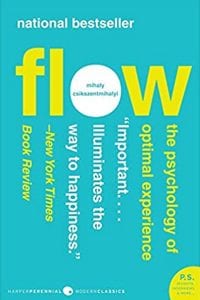
Flow: The Psychology of Optimal Experience
I’m hot, which is normal in my house and my wife is cold, which is normal in our house. We’re sitting in the same room together and I want the window open for the breeze. I want the window open because it’s too hot. She says, “No, I’m cold. Shut the window.” What’s the compromise? “Why don’t we meet in the middle? Let’s open the window halfway.” What does that do? Now she’s freezing and it’s still stuffy so you’re not getting what you both want.
Instead of trying to compromise, instead of meeting in the middle, what you need to do is recover the intention. Recovering the intention is like sometimes in our behaviors and our desires, the intention behind the behavior, the intention behind the desire is lost. We don’t know what it is consciously. We don’t communicate what that is. I say, “Can you close the window?” We don’t communicate that the intention for why I want the window closed is because I’m cold. It’s a simple thing but we oftentimes in communication don’t communicate our intention. We communicate our desire or behaviors. Rule number one for negotiation is to quit compromising and look for the intention. Look for what you’re both wanting.
Rule number two is to recover the intention. I don’t care what the situation is, whenever someone says, “This is what I want. This is what I need. This is what I’m looking for. This is my offer.” You always ask the question, “What’s your intention for that?” Another way to say it is, “What’s the purpose of offering this number? What are you wanting out of that? Why are you offering this number? Why is that the number you landed on? I want to know. The example I gave to a RE/MAX office where I was doing training. I talked about the idea of termite reports and this is a common thing they’ll come up but not as much of a cash investment.
You got to fix the fence. The fence is beaten up. There are termites. The termite guy says, “You’ve got to fix the fence. What do we do?” The seller says, “I don’t want to fix a fence. That’s not fair. We already agreed on the price.” The buyer says, “I didn’t know that the fence was broken down. I think it’s fair. You fix the fence.” Now you have this little detail of a $1,500 fence and it’s make or break it. In my time as a mortgage broker, as a real estate broker and investor, I’ve seen them fall apart over something much smaller than that, but that’s a common one. I’m not willing to do the seller credit thing. What you do is you start with recover the intention.
The seller doesn’t want to not fix the fence because they’re a jerk and the buyer doesn’t want them to fix the fence because they’re greedy. There’s an intention behind it. Maybe the intention is, “I don’t want to fix a fence because I’m already tapped out and we thought we were going to net this much money and now it’s about the cash.” Maybe though that’s not. People always assume it’s money. It’s not always money, especially in real estate. Sometimes I don’t want to fix a fence because I feel I’ve already done many repairs to the house that I feel like it’s too much. I’ve already made it nice and it’s a feeling they get.
There’s also this thing like it’s the principle of it. That’s that feeling of, “I’ve done enough.”
The house we live in when we were negotiating this, it was a small little thing, but we had two things happen that the deal changed. The first one was the appraisal came in less. Now I went in and I said, “I’m willing to pay you top dollar. I like this house. We want to live here.” The appraisal came in short, I said, “We want to pay you top dollar but it turns out top dollar is this much and not a little bit less.” We talked about it and we had a good negotiation and it seemed fair. They liked it. They thought, “We’re still getting the top of the market for this.” I still felt good because coming from California to Michigan, I think houses are 70% off so I didn’t care. I felt like it was a good deal and it’s gone up since then so it’s fine.
A second thing happened and then we had the inspection. We went back and said, “This, this, and this is not functioning properly. We would like it to be fixed.” The principal felt when we uncovered the intention was, “I already feel like I gave you something and now you’re asking for more.” They didn’t want to do it because they thought we were being greedy. What did we do? I communicated our intention and I said, “I feel like these are two different things and we want to pay you the top dollar we promised based on the appraisal and that is that. When it comes to the repairs, we’re not looking for anything over and above. My intention is that we get a fair deal and I know that you want to sell a house at a fair deal too.”
What happened is we both found the same higher intention. We landed on the fact that they want to be fair people and we want to be fair people and as simple as it is. That went so far to use the language and this is where NLP comes in, the language pattern itself. I kept coming back to no matter how detailed we got on the concessions and what’s the price, I want $50 for this or $2,000 for that or whatever it is. We always made sure I wrapped it in the package of, “I think what the fair thing to do would be this. It would be fair to split this cost down the middle. I feel like if I was in your shoes, the fair thing to do would be this.”
As long as we kept the intention alive of we’re looking for fairness, they agreed on fairness, we agreed on fairness. The only question is what is exactly fair? Sometimes you don’t get what you want. I go, “If I want to be fair, maybe we shouldn’t ask for that extra dollar. It’s fair to do this for the person.” What you find is you don’t get as much of what you “want” but you’ll find better deals. You’ll be a better human, a better investor, a better partner, a better seller. Ultimately, more wins happen and you get to play the game.
I talk a lot about playing the games and winning games. It’s not whether you win or lose, it’s how you play the game and that couldn’t be more truthful. How you play the game of negotiation isn’t about winning and losing. It’s literally about how did you play that game? If I play the game well, I will win more than I lose and hopefully, there won’t even be losers. When you play the game well, you get invited to more games. I quoted that from Jordan Peterson who is an interesting professor who talks about the game of life.
When you get invited to more games, that means someone thought, “I’ve got a great deal from this investor and they took care of me.” All of a sudden, they send you their uncle and they say, “You should talk to Moneeka too. She got me out from under this house that was a burden and it was a fair deal.” All of a sudden, you get a bigger deal because of that. You get the referrals and you start to play more games. Life is about playing more games, not about trying to win the one little one you have.
The only thing that I like about the way that you present this is you’re finding some mutual ground and some mutual intent. That mutual intent allows you to see the best in the other person, which then brings that out in them. It also allows you to plug into the best in yourself and then that person comes forward. With the game analogy, my husband and I play board games all the time. I always lose and he always wins. The reason we keep playing is that he’s fun to be around when we’re playing.
It’s fun when he wins and you’re fun when you lose.
If it turns around, then it’s fun the other way too. The thing is that we bring out the best in each other during that process because it’s fun for us. We have a common intention. When you’re negotiating, remember that it’s you who’s showing up for that and if you allow the other person to be the best, then you allow yourself to be the best person. It feels much more blissful for everybody, which is the end result that we’re looking for.
When you give a metaphor or an example of playing board games with your husband, you can get worked up and like couples games and Monopoly feels like it’s the end of the world and it feels like there’s nothing more important than, “You cheated.” “No. The rule is you can’t roll three times. You have to pay and then it’s my turn. Get out of jail.” We can get bogged down in this little rule. What happens is this, the game feels bigger than it is. The rule for negotiation is this game is never what it’s about.
There’s always a bigger game and life is the bigger game. If I’m in the middle of negotiating like this house, if we made an extra $2,000 or lose $2,000, it doesn’t matter. At the end of our life, more than the end of the day, there’s a much bigger game I’m playing. If I want to win real estate, I can’t win from one house. You’re going to win from many rental properties, many flips or many combinations of these, or you want to work your way from residential to multifamily or commercial. There’s something you’re doing. There’s a broader game. Remember when you negotiate that, “Is this the hill you want to die on?”
Sometimes it makes more sense to go, “I pick relationship over rules and I’m keeping the relationship with this person. I’ll give up the $1,000 because I’m playing a bigger game.” I hate the metaphor of the battle or the war. That’s not where I’m going. There’s a bigger game in life here and if I want to succeed in life and I want to succeed long-term, there’s a much bigger game and this is Monopoly. It’s a Wednesday night family game, so what if the rule was broken? Let it go. My wife is more important than whether or not the rule says this. What we’ve got to remember is, this game will not last but the big game does.
One of the things that I’d love to do, Matt, if you’re open to this is we’re going to be moving into EXTRA. He’s going to share some of these patterns with us so that we can become more default blissful and play the game better in our lives. Matt, could you tell everybody how they can reach you?
I’ve enjoyed this conversation immensely. I always love connecting with you Moneeka and everyone reading. If this was relevant to you and you’d like to learn a little bit more about NLP, what this thing is, I decided to make a simple gift for everybody. If you head over to NLPWithMatt.com, instead of giving some template or report on something, I decided, “What if I gave everybody interested in NLP and further in the conversation a complete and total NLP practitioner manual?”
This is a 74-page color manual that I use for my advanced certification training. I took the whole course manual and give you the whole thing. You can look from A to Z and learn everything about what NLP is from language patterns, to state management, to mindset, all of it, and then some are all in the manuals. You can follow me anywhere on social @MattBrauning, on Instagram. I put all memes in the family and fun clips and things like that on there. If you want the free manual, it’s right there on the website for you.
Thank you, Matt. That’s generous. I love that. Give us one super tip on how to be successful in real estate investing?

Be A Better Negotiator: Stop and think things through.
One super tip is to act immediately. I think when I look back in my early career, I ordered this home study from Carleton Sheets, the No Down Payment. I never used his method exactly, but it got me motivated and I realized, “Why am I still waiting for the perfect time?” The principle I learned from Carleton Sheets wasn’t about no money down. I put the money down, but I decided to purchase it. I said, “I’m going to get out there and look for something.” I found this five-unit place in Long Beach, California. I bought it and sold it four months later and I made $180,000 profit. I did that when I was 23 years old. I share that story not to impress you, but to impress upon you that concept of start now because there’s never a better time than now besides yesterday.
Give us one strategy on how to be successful in real estate investing?
Here’s the opposite side of it. Stop and think things through. In life languages, it’s called a mover, Enneagram Type 7. When I get a feeling of motivation, just go. If I want new patio furniture and I feel motivated, I go to the store that day and I want to get it home today. If you’re like me, the other side starts acting and goes after it then when you get the deal, when you get an opportunity in front of you, stop and think. If you don’t normally work the numbers, work the numbers backward and forwards, send it through to a friend that knows what they’re doing to hash it out with you. It’s not the end of the world if you say no to an opportunity. Stop and think things through and lay the emotion down, you’ll stop a lot of dumb mistakes.
What would you say is one daily practice that you do that contributes to your personal success?
It’s changed over the years a lot. It used to be the standard, I read this or I meditate or I journal. What it is now for me as I get busier is always making sure that every day I find a way to create moments with my family. I have my wife Lola of several years and our son Valiant, and we all live at home together. Especially during the year 2020, we’ve been at home more than we probably ever have before when my traveling stopped. Even during these times, I’m up in my office all day. In between my last interview and this one, I got twenty minutes and I went downstairs and I grabbed my son.
I’m thinking, “How can I create a moment out of these extra 5, 10 minutes?” Not just, “Can I sit on the couch and talk to him for twenty minutes?” How do I make a moment in my spare time if every day you can look back and say, “What was the one outstanding magic moment for myself with my creator, myself with my family, myself with my friends, whatever it was?” You’re going to look back at a week of seven magic moments minimum and you’re going to feel like you had a great week.
I’ve never heard anybody say it quite that way. I love that because I think it’s true. Dave and I have date nights every week and that’s our sacred time. We’ve been doing this for many years. It is true that during the week like I’ve got a day like you, I’ve got interviews all day long, I’ve got twenty-minute breaks in-between and feel like I need to scramble instead of thinking, “What can I do for five minutes that would create something magical for me?” What’s beautiful about that is it helps relationships. It also uplifts both of us to then perform at our best wherever we’re going next. I’m going to implement that. Thank you, Matt.
You’re welcome.
Matt, this has been an amazing conversation as always. Thank you for joining us for this portion of the show.
I can’t thank you enough. It’s always a pleasure being with you, Moneeka. Any time, any bad time, any bad channel, I am here.
Ladies, stay tuned. Matt’s got more. He’s going to go into some of those patterns to try to change your paradigm during the show. If you are already subscribed to EXTRA, if you’re not but would like to be, go to RealEstateInvestingForWomenEXTRA.com. When you subscribe, you get seven days for free so you get to download a ton of stuff that’s already there. Check it out and then you can subscribe if you’d like to. The cool thing is that once you’re subscribed to EXTRA, it will show up.
You don’t need any new apps. You don’t need any new tech. It will show up right there for you. For those of you who are leaving us now, thank you for joining Matt and I for this portion of this show. You know how much I appreciate you and I look forward to seeing you. Until then remember, goals without action are just dreams. Get out there, take action, and create the life your heart deeply desires. I’ll see you next time.
Important Links
Love the show? Subscribe, rate, review, and share!
Join the Real Estate Investing for Women Community today:

Moneeka Sawyer is often described as one of the most blissful people you will ever meet. She has been investing in Real Estate for over 20 years, so has been through all the different cycles of the market. Still, she has turned $10,000 into over $5,000,000, working only 5-10 hours per MONTH with very little stress.
While building her multi-million dollar business, she has traveled to over 55 countries, dances every single day, supports causes that are important to her, and spends lots of time with her husband of over 20 years.
She is the international best-selling author of the multiple award-winning books “Choose Bliss: The Power and Practice of Joy and Contentment” and “Real Estate Investing for Women: Expert Conversations to Increase Wealth and Happiness the Blissful Way.”
Moneeka has been featured on stages including Carnegie Hall and Nasdaq, radio, podcasts such as Achieve Your Goals with Hal Elrod, and TV stations including ABC, CBS, FOX, and the CW, impacting over 150 million people.

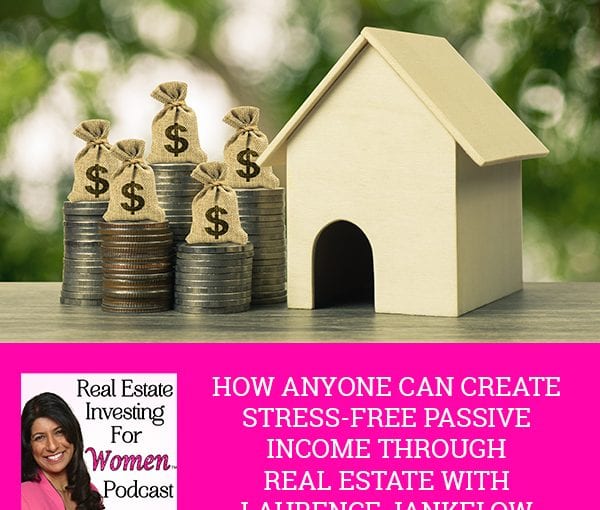
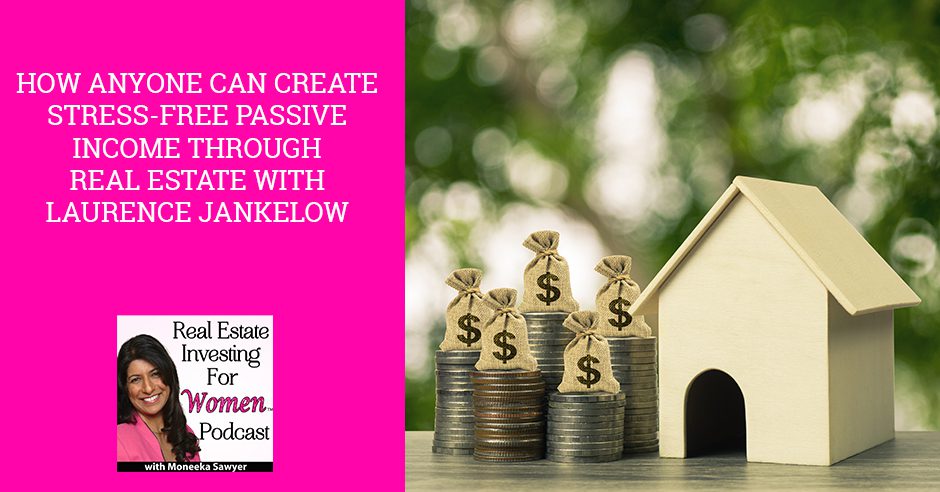


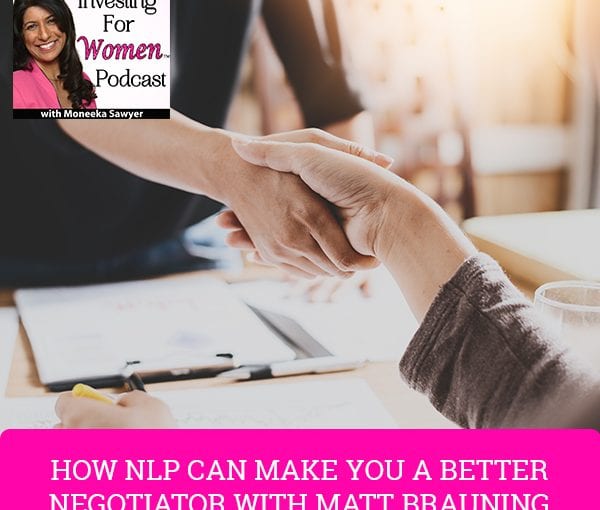




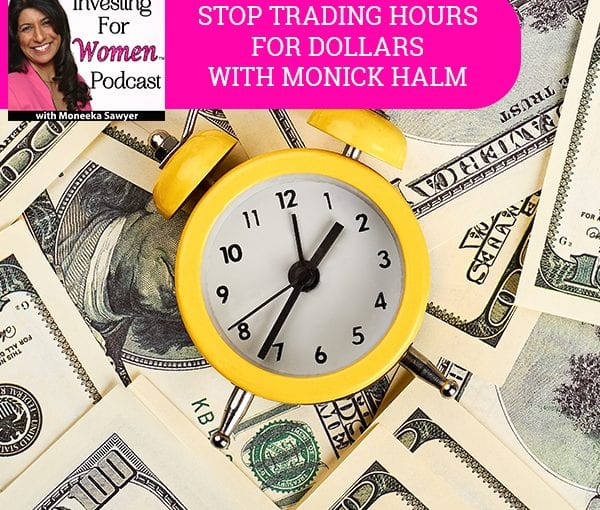
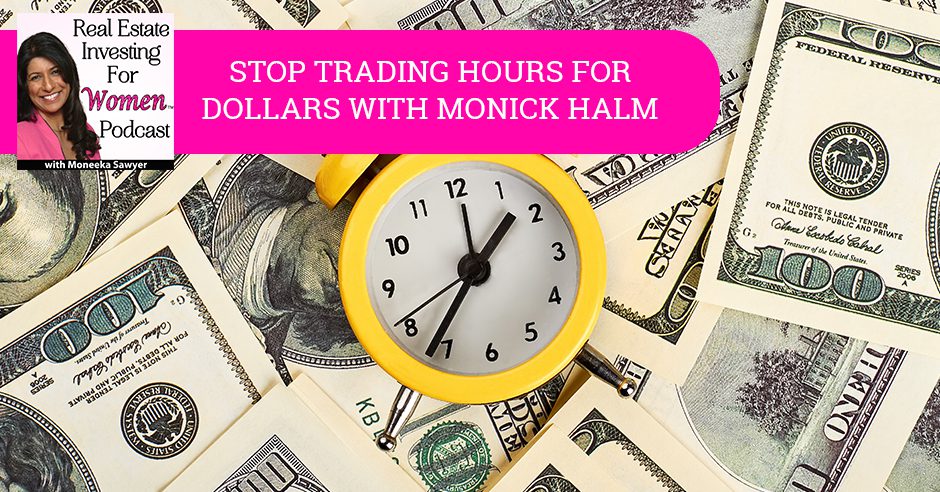


 Monick Halm is the founder of Real Estate Investor Goddesses. She is an educator and advocate for women to create real wealth through real estate. She is herself a real estate investor, syndicator, and developer with over 14 years of real estate investing experience in multi-family, mobile home parks, RV parks, flipping, commercial, vacation rentals, syndication, and ground-up development. Together with her husband Peter Halm, and her investors, she owns over 1300 rental units across 6 states.
Monick Halm is the founder of Real Estate Investor Goddesses. She is an educator and advocate for women to create real wealth through real estate. She is herself a real estate investor, syndicator, and developer with over 14 years of real estate investing experience in multi-family, mobile home parks, RV parks, flipping, commercial, vacation rentals, syndication, and ground-up development. Together with her husband Peter Halm, and her investors, she owns over 1300 rental units across 6 states.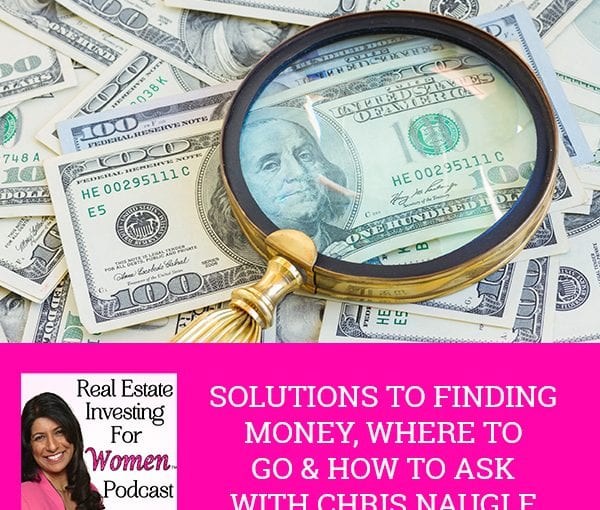
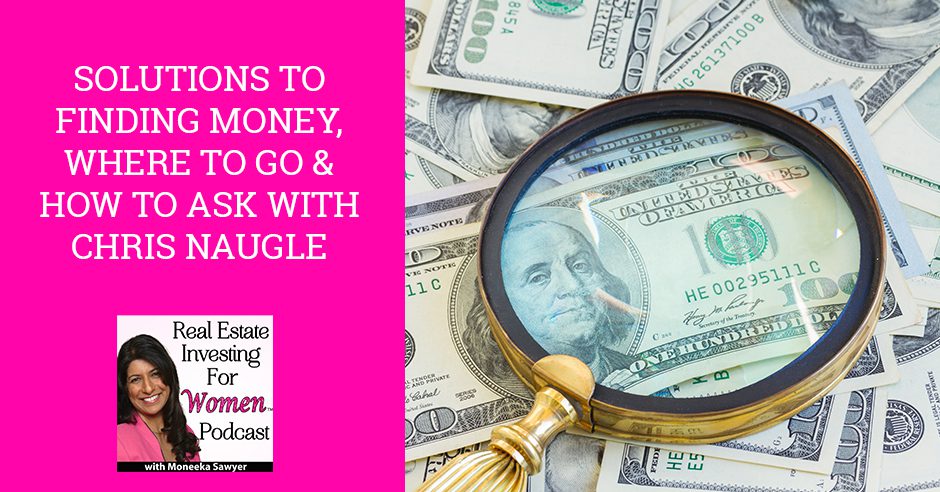



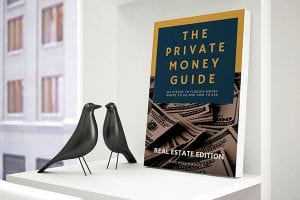
 Chris Naugle has dedicated his life to being America’s #1 Money Mentor. His success includes managing over 30 million dollars in assets in the financial services and advisory industry and tens of millions in real estate business, with over 200 transactions and an HGTV pilot show since 2014.
Chris Naugle has dedicated his life to being America’s #1 Money Mentor. His success includes managing over 30 million dollars in assets in the financial services and advisory industry and tens of millions in real estate business, with over 200 transactions and an HGTV pilot show since 2014.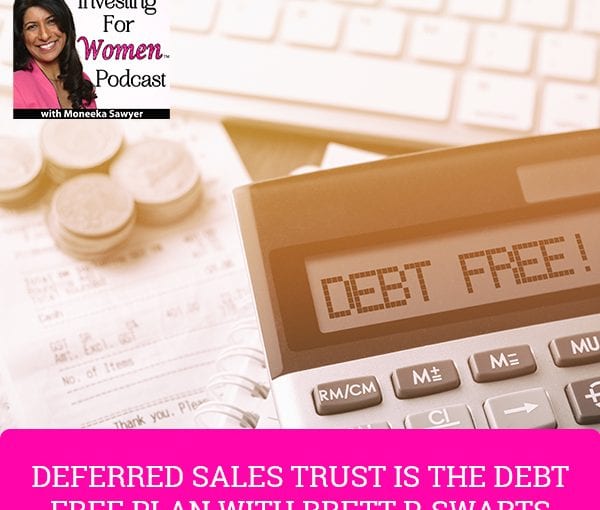
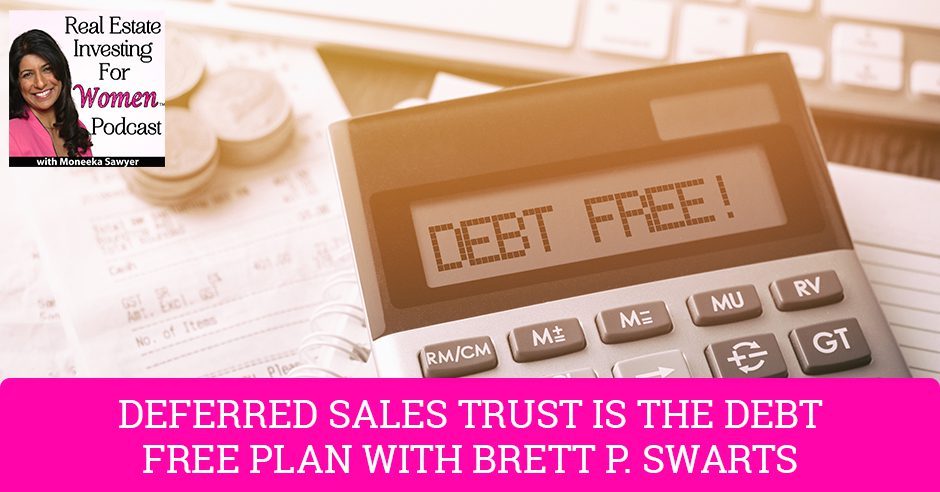



 Brett is a capital gains tax deferral expert, Investment Real Estate Expert, Multifamily Broker, and the Founder of Capital Gains Tax Solutions – a company helping people to defer capital gains tax on the sale of their highly appreciated assets, eliminate the need for a 1031 exchange, and free up their time so they can create & preserve more wealth.
Brett is a capital gains tax deferral expert, Investment Real Estate Expert, Multifamily Broker, and the Founder of Capital Gains Tax Solutions – a company helping people to defer capital gains tax on the sale of their highly appreciated assets, eliminate the need for a 1031 exchange, and free up their time so they can create & preserve more wealth.